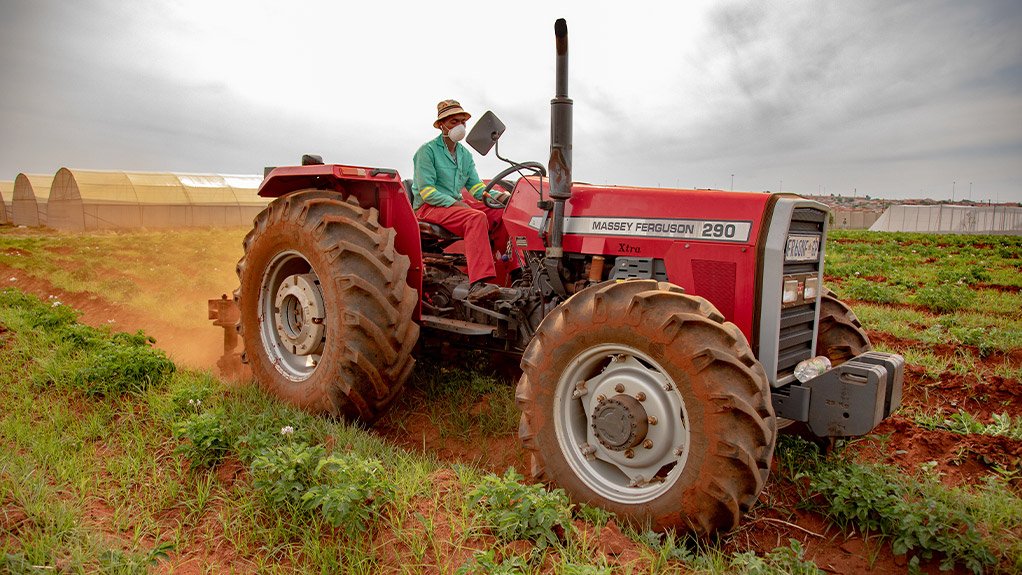Federation of agricultural organisations AgriSA on Tuesday painted a dire picture of the impact the years-long drought has had on South Africa’s farming industry and its now-waning capacity to recover in the midst of a climatic shift.
Over the past four years, the country has faced a drier climatic spell, leaving the industry reeling from massive financial constraints, decreasing yields and less planting by farmers, says Agri Northern Cape deputy president and Agri SA Disaster Management Centre head Willem Symington.
“Prolonged dry spells during the second half of the 2018/19 rainy season resulted in reduced seasonal production, food deficits, price increases and increased food insecurity in many parts of Southern Africa, including southern Angola, Namibia, southern Zambia and parts of Lesotho, Botswana and Zimbabwe,” he says.
In the first half of 2019, South Africa’s real agricultural output was 9.2% lower than in the corresponding period last year, while the financial strain on farmers is increasing, with rising carry-over debt.
While South Africa is the most food-secure country in Africa, with an agricultural sector that contributes 2% to the gross domestic product and the employment of about 880 000 people, the drought has a long-term impact that could put food security at risk and thousands of jobs in limbo.
The current climatic shift is causing longer and more frequent periods of drought that are putting into question the usually resilient – and well-adjusted to the cyclical nature of the climate – farming community's ability to recover.
Symington’s comments follow the release of the ‘Agriculture Drought Report 2019/20’.
“As a country, we are not managing climatic disasters very well,” Symington comments.
From the Northern Cape, to the Free Sate and beyond, South Africa’s provinces are buckling under the prolonged drought.
“The drought, as well as drought relief for farmers, farm workers and farming communities, is no longer of a temporary nature,” says AgriSA executive director Omri van Zyl.
A third of South Africa’s rural communities are affected, sending the country on a path towards an imminent rural economic collapse owing to reliance on the agricultural economy.
There is also an increasing concern that grain-producing summer rainfall regions and certain fruit production areas have not yet received adequate rain, with many farmers already a month late to plant with a very tight timeline in which to do so.
Grain South Africa CEO Jannie de Villiers says there has been insufficient rain for large-scale plantings, while other farmers are ready but cannot secure enough financing as a result of too much debt.
Wheat production dropped from 1.86-million tonnes in 2018 to 1.69-million tonnes this year, although more hectares were planted in the Western Cape.
Further, in the Western Cape, the industry experienced a loss of 25% in the value of export crops, Symington adds, noting that the industry is heading into the third season out of five production years that “did not go well” owing to climatic conditions.
The conditions in the Northern Cape have also reached crisis levels.
"From April to November, the number of farms affected increased from 10 000 to 15 500 covering more than 20-million hectares. This relates to 613 447 livestock units (LSUs).”
The total area affected by the potential drought disaster in the province is 27-million hectares with a carrying capacity of more than one-million LSUs, he outlined during a presentation.
The province is yet to be declared a disaster area.
While it is not necessary at this stage to declare a disaster at a national level, the Western, Eastern and Northern Cape, as well as Limpopo, should have been declared disaster areas a year ago, Symington adds.
AgriSA recommends the establishment of a National Drought Management Commission that focuses on providing the government with an effective and systematic means of assessing drought conditions, says AgriSA deputy executive director Christo van der Rheede.
The report also points to the establishment of a drought and disaster fund; public–private partnerships; multiperil agricultural insurance; and early warning system for disaster risk reduction.
Other recommendations include the development of emergency measures with regard to water and food relief; drought insurance; support towards the retention of farm workers and the labour wage bill; and interest subsidies on production loans and debt.
Further, access to bridging finance for affected farmers to manage down the repayment of agriculture debt is required, as are tax breaks for farmers in need; financial assistance to buy fodder; and support to remove invasive plant species.
EMAIL THIS ARTICLE SAVE THIS ARTICLE ARTICLE ENQUIRY
To subscribe email subscriptions@creamermedia.co.za or click here
To advertise email advertising@creamermedia.co.za or click here











